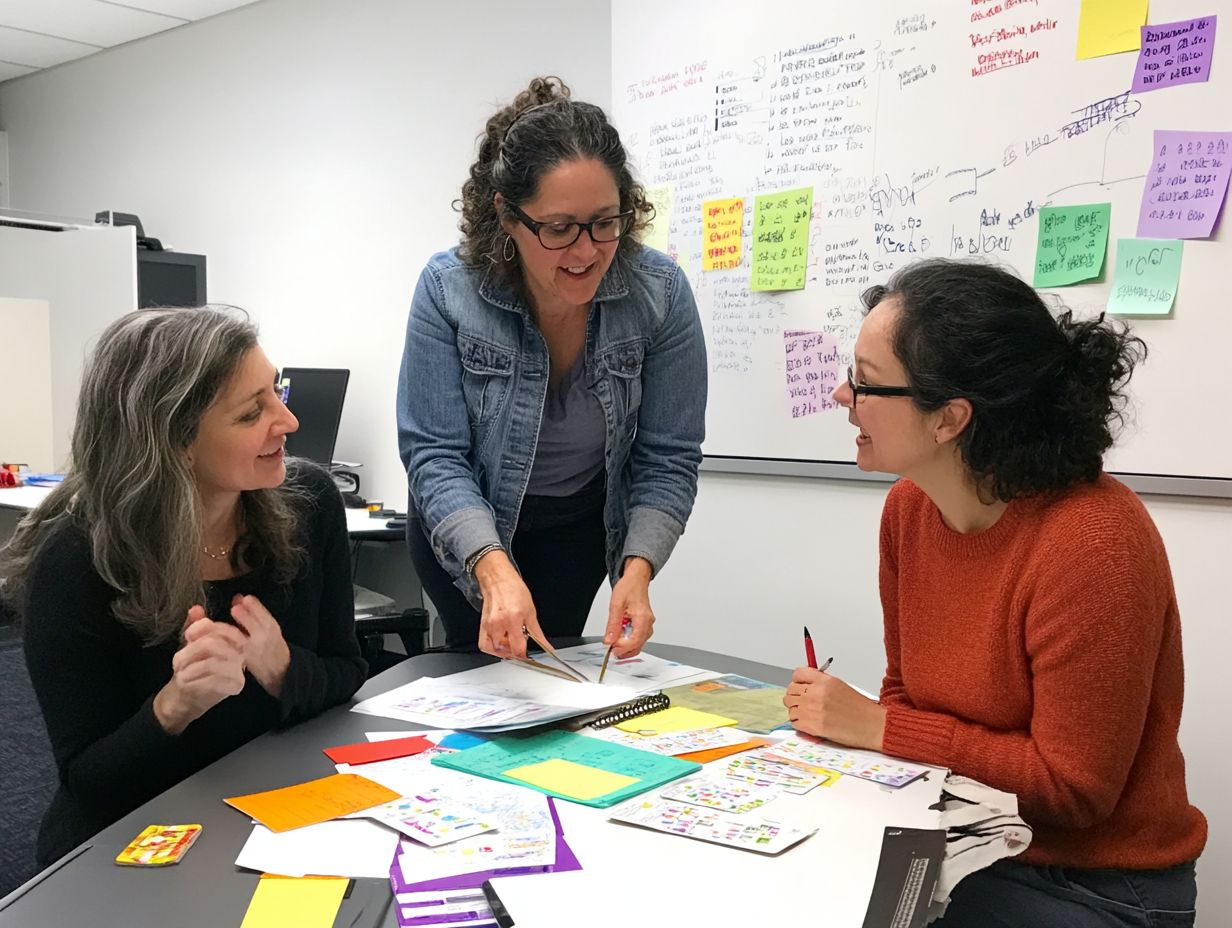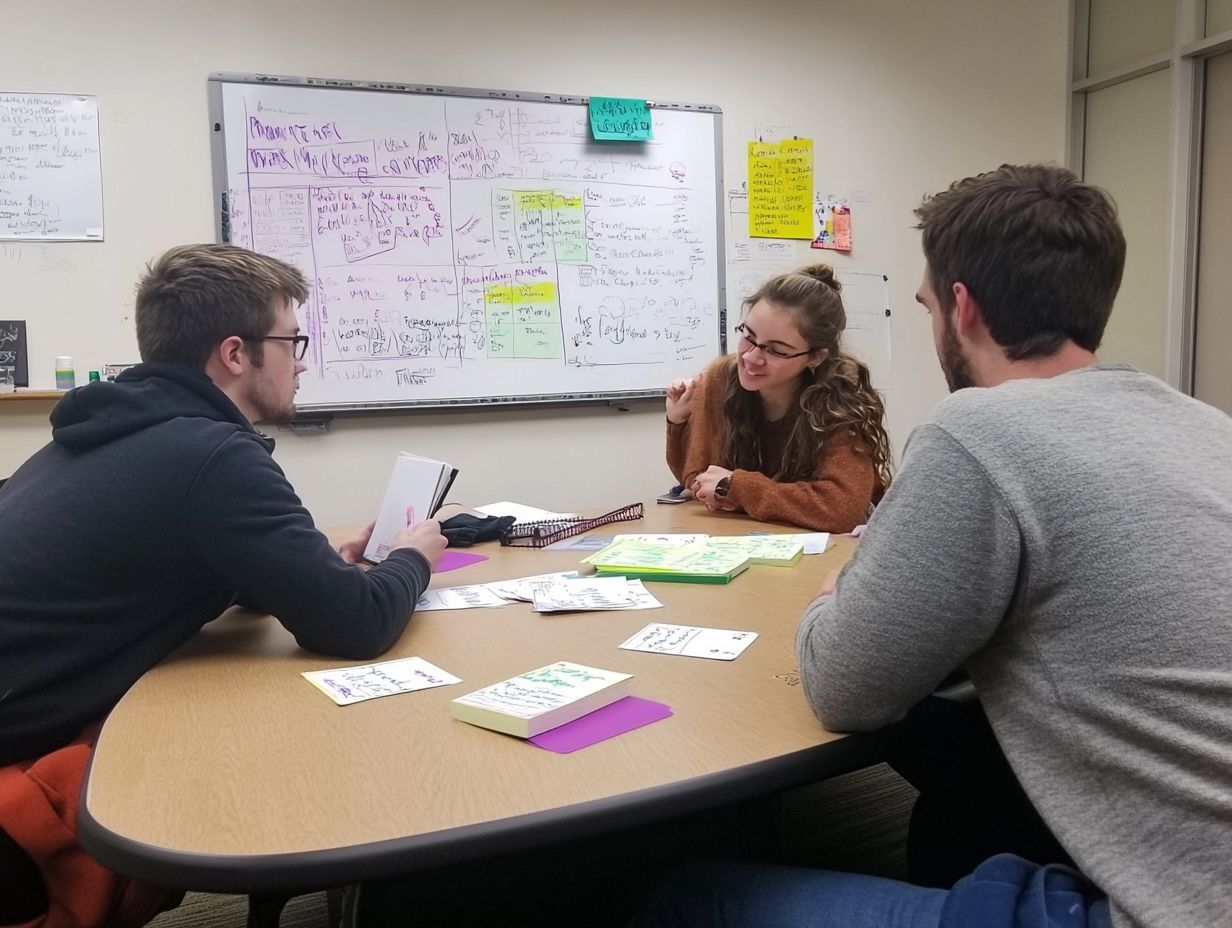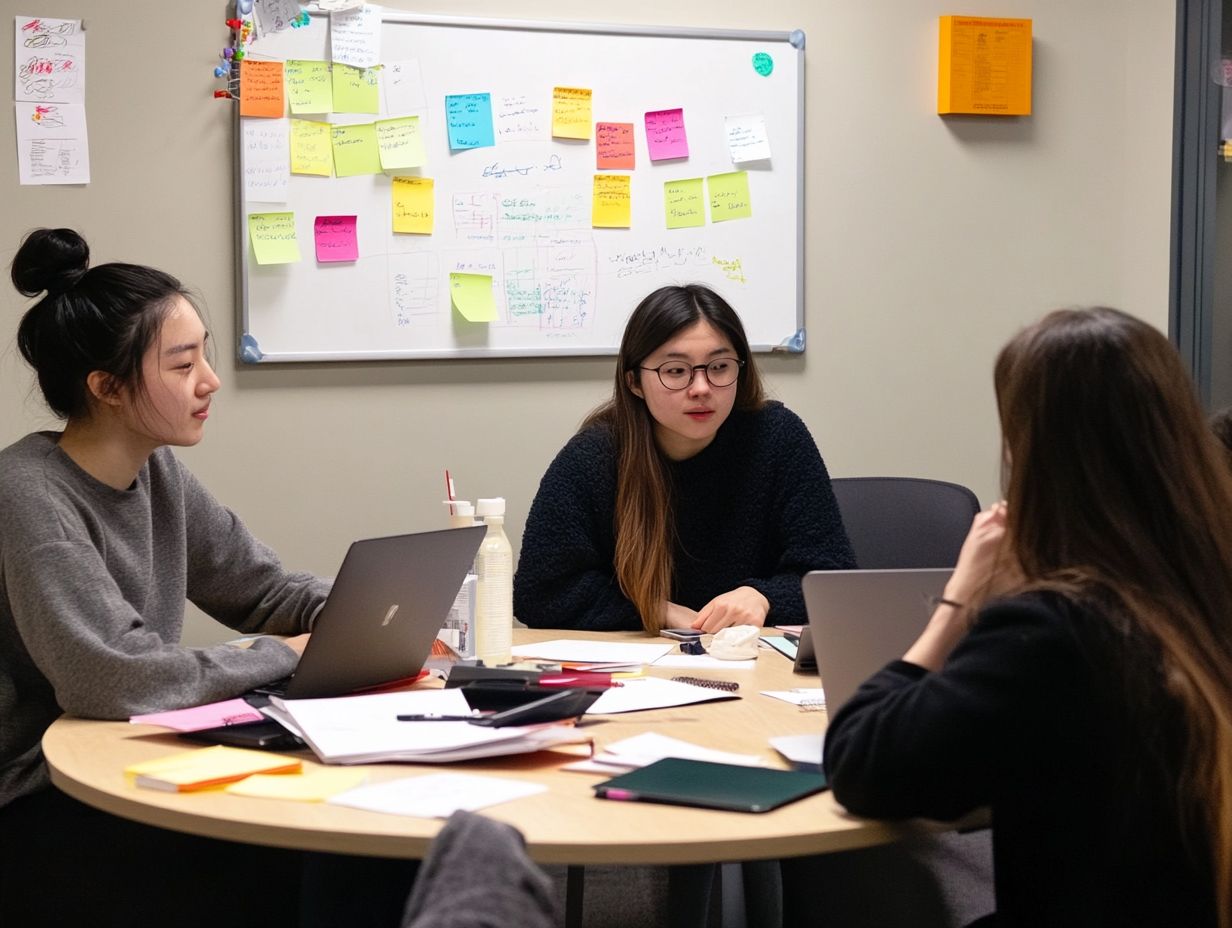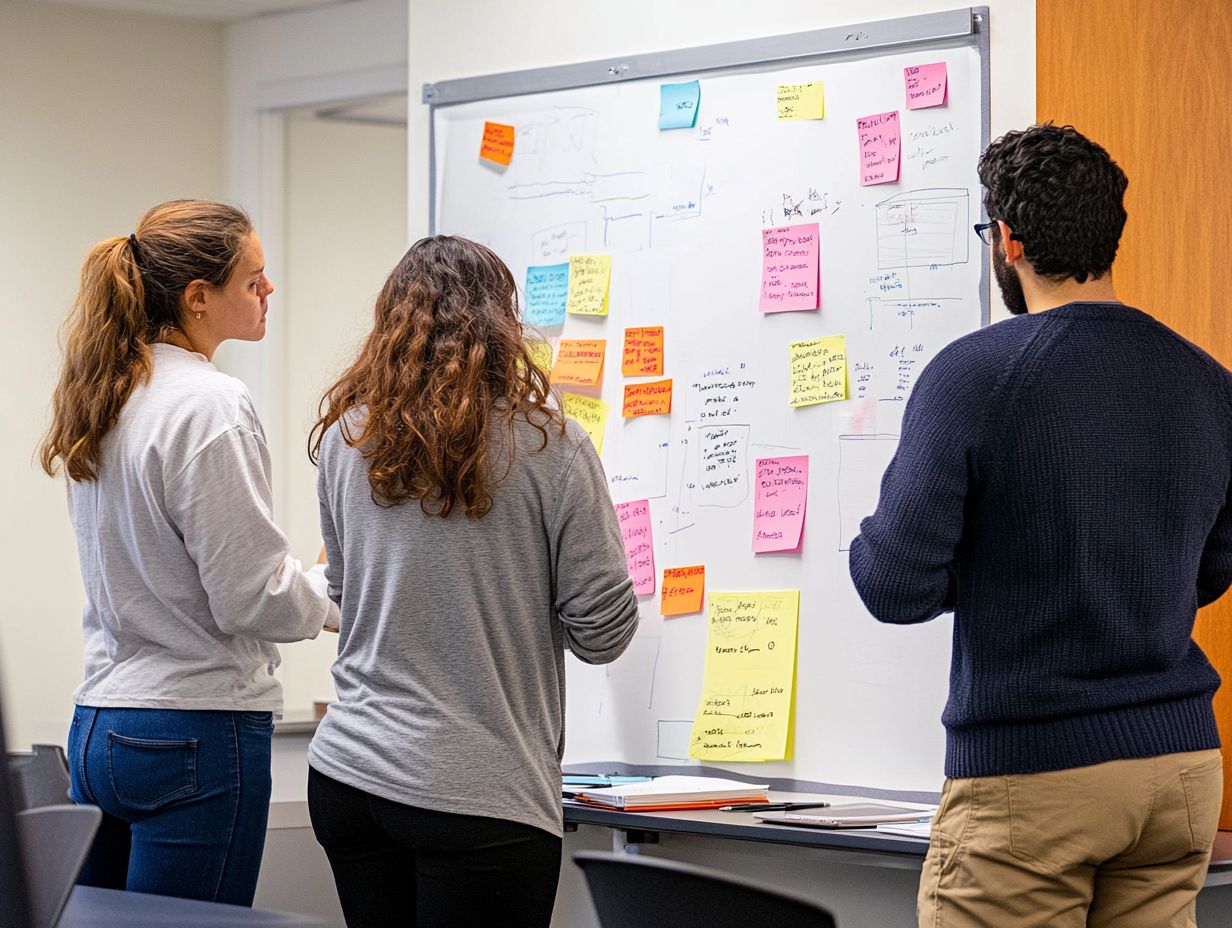5 strategies to enhance memory for vocabulary
Mastering vocabulary can seem like a tough task, but with the right strategies, it can transform into an enjoyable and highly effective journey.
Get ready to discover five exciting techniques! This article introduces five practical techniques: utilizing visual aids, crafting associations, practicing actively remembering information, employing spaced repetition, and seamlessly incorporating vocabulary into your daily life. These will significantly enhance memory retention.
You ll discover the critical role memory plays in learning, the various types of memory involved, and effective methods to measure your progress, all while facing common challenges you may encounter.
Join us on this journey to unlock the secrets to mastering vocabulary today!
Contents
Key Takeaways:

- Use visual aids such as images or mind maps to help remember vocabulary words.
- Create associations between new vocabulary words and familiar ones to enhance memory retention.
- Practice actively remembering information by trying to use new vocabulary words in daily conversations or writing.
1. Supercharge Learning with Visual Aids!
Incorporating visual aids into your educational practices can truly elevate your students’ memory and learning experiences. Engaging visual images and creative representations like playful images or maps cater to various cognitive functions and learning styles. This makes information retention more effective.
In a dynamic classroom setting, different types of visual aids can be incredibly beneficial. Consider using:
- Charts to summarize key concepts,
- Diagrams to illustrate complex relationships, and
- Mind maps to promote creative thinking and organization of ideas.
These tools deepen students understanding of the subject matter and activate multiple cognitive pathways, transforming the learning experience into something interactive and enjoyable.
When you employ visual aids, they help students grasp abstract concepts more concretely. Ultimately, this boosts comprehension and keeps information fresh in their minds. By connecting visual elements to your content, you can leverage effective memory strategies that enhance retention and recall, catering to a diverse range of learning preferences.
2. Create Associations
Creating mental associations is a powerful technique that connects new vocabulary and information with what you already know. This enhances your long-term memory and makes it easier to retrieve learned material.
By utilizing methods such as chunking, where you group related pieces of information together, you can manage and recall complex concepts more effectively. For example, when learning a series of related terms in a foreign language, categorizing them by themes like food, transportation, or emotions can make them more memorable.
Linking unfamiliar terms to concepts you already know provides a relatable understanding. Imagine visualizing the word “abin” in a literature class as something similar to the English word “abin” in your native tongue.
This approach not only enriches your vocabulary learning but also helps you grasp intricate subjects across various educational contexts.
3. Practice Active Recall

Active recall is a powerful method for enhancing your memory retention. By engaging in self-testing and retrieval practice, you reinforce your understanding of reviewed material while improving your long-term memory.
This approach transforms passive studying into a dynamic learning experience. It prompts you to actively retrieve information instead of just re-reading. Incorporating tools like flashcards allows you to quiz yourself on key concepts, making that information much easier to recall later on.
Practice tests are invaluable; they help identify knowledge gaps and simulate exam conditions. This can reduce anxiety and boost your confidence.
Group discussions are important as well. They provide a platform for you to articulate your understanding and challenge your peers, deepening your grasp of the material.
These active recall strategies create a more effective and enriching educational journey for you. Take action now and start applying these techniques for better vocabulary mastery!
4. Use Spaced Repetition Techniques
Spaced repetition is a powerful memory technique that allows you to review material at strategically timed intervals. This enhances your learning and academic performance by solidifying information in your long-term memory.
This approach aligns with your brain’s natural learning processes, making it far more effective than the old-fashioned cramming method. By revisiting information just as it starts to slip away, you reinforce those vital neural connections, boosting your retention.
You can seamlessly integrate this technique into your study routine by taking advantage of various digital tools and apps tailored for spaced learning. For example, platforms like Anki or Quizlet automatically schedule your review sessions based on your individual performance. Start using spaced repetition today to unlock your learning potential!
To get the most out of this method, consider pairing spaced repetition with active recall. This way, you re not simply passively reviewing; you re genuinely engaging with the material, ensuring it sticks with you for the long haul.
5. Incorporate Vocabulary in Daily Life
Incorporating vocabulary into your daily life practices is crucial for language learning. It actively engages both your active and passive vocabulary, enhancing your memory retention while making words more meaningful and applicable in real-world contexts.
One effective method is to weave new words into your everyday conversations, whether during casual chats with friends or in more structured discussions at work. Make it a daily habit to enrich your vocabulary and see your language skills soar!
Writing serves as another powerful tool. Maintaining a journal with freshly learned vocabulary allows for creative expression while reinforcing memory through practical application.
Engaging in activities like reading diverse materials or playing word games further immerses you in varied contexts, promoting better retention. This blend of repetition and exposure strengthens your language skills and enriches your understanding, ensuring that each new word finds its rightful place in your lexicon.
Why Is Memory Important for Learning Vocabulary?

Memory is essential for mastering vocabulary, enabling you to store, retrieve, and apply new words effectively. This skill supercharges your comprehension and enhances your overall academic performance across various subjects, from languages to mathematics.
Employing effective memory strategies like visualization, mnemonics (memory aids that help you remember information), and spaced repetition can dramatically improve your vocabulary retention.
Cognitive science research highlights that forming meaningful associations allows you to encode new vocabulary more deeply, making it easier to access when you need it in real-life situations.
For example, a study published in the Journal of Educational Psychology revealed that students who used imagery and context while learning new words enjoyed significantly higher retention rates compared to those who relied on rote memorization.
By incorporating these memory techniques into your study routine, you can elevate your vocabulary and boost your overall language proficiency, creating valuable connections across different disciplines.
What Are the Different Types of Memory?
Understanding the different types of memory short-term memory, long-term memory, and working memory can significantly elevate your learning strategies. This allows you to tailor your study habits to harness the strengths of each type in cognitive function.
Each of these memory types plays a crucial role in how you acquire, retain, and recall information. Short-term memory enables you to temporarily hold and manipulate data for immediate tasks, while long-term memory is essential for storing information over extended periods.
Working memory serves as your mental workspace, where you actively process and utilize information. By recognizing the functions of these memory types, you can develop more effective study techniques, like breaking complex material into smaller, manageable chunks for short-term retention or employing spaced repetition to cement knowledge in long-term memory.
This deeper understanding gives you the power to craft personalized and efficient study plans that align with your unique cognitive needs.
How Does Memory Work?
Memory works through complex interactions in your brain. Information gets encoded, stored, and retrieved using various techniques.
Different brain areas, like the hippocampus (which helps form new memories) and the cortex (which stores them), work together to create memories. A diet rich in antioxidants and omega-3 fatty acids can significantly boost your cognitive function and memory.
Good sleep is crucial, too. It helps consolidate memories and clear unnecessary information.
Regular practice, like spaced repetition or engaging actively with material, strengthens your memory pathways. This way, information is not just stored; it s easily accessible when you need it most.
What Are the Common Memory Strategies for Learning Vocabulary?

Common strategies for learning vocabulary include mnemonic techniques, visualization, and rehearsal. These methods make vocabulary acquisition effective and enjoyable.
Using mnemonic devices, like acronyms, helps you remember related terms by creating catchy phrases. Visualization encourages you to create vivid mental images of vocabulary words, which strengthens your memory.
Rehearsal techniques, such as spaced repetition, help you review vocabulary systematically. Together, these methods make mastering new language skills efficient and engaging.
How Can One Measure Their Vocabulary Memory?
You can measure vocabulary memory through self-testing methods like practice tests and quizzes. These approaches reveal your retention levels and show areas needing improvement.
Using tools like flashcards and spaced repetition systems also enhances vocabulary retention. Engaging with words in different contexts deepens understanding and improves recall.
Regular self-testing is beneficial. It helps you monitor progress, identify trends, and refine study strategies.
Incorporating periodic assessments, like written exercises or interactive quizzes, cultivates a broader vocabulary. Consistent practice reinforces your memory!
What Are the Possible Challenges in Enhancing Memory for Vocabulary?
Students often encounter a variety of challenges when it comes to enhancing their memory for vocabulary. Cognitive overload can occur when you try to learn too much at once, making it hard to remember new terms.
These obstacles can leave you feeling overwhelmed and frustrated. This is especially true when facing specialized vocabulary in subjects like science or literature.
Break the material into manageable chunks to help reduce cognitive overload. Incorporating personalized strategies, such as visual aids or mnemonic devices, can make vocabulary acquisition more engaging.
Establish a consistent practice schedule that includes activities like flashcards or interactive games. These can really help you remember more.
With the right strategies, you can easily overcome these challenges and improve your vocabulary skills.
Frequently Asked Questions
What are the 5 strategies to enhance memory for vocabulary? The 5 strategies are: spaced repetition, creating associations, using visual aids, practicing in context, and regularly reviewing.
How does spaced repetition help with enhancing memory for vocabulary? Spaced repetition involves reviewing material at gradually increasing intervals. This helps strengthen connections in your brain and improve long-term memory retention.
Why is creating associations an effective strategy for enhancing vocabulary memory? Creating associations with familiar words or concepts makes new vocabulary more memorable and easier to recall.
How can visual aids be utilized to enhance memory for vocabulary? Visual aids, like flashcards or mind maps, improve memory by providing a visual representation of the word and its meaning.
Why is it important to practice vocabulary in context? Using vocabulary in sentences or conversations strengthens brain connections and makes the words more meaningful.
How often should one review vocabulary to enhance memory? Regularly reviewing vocabulary, ideally daily or weekly, reinforces the words and their meanings, making them easier to recall.





